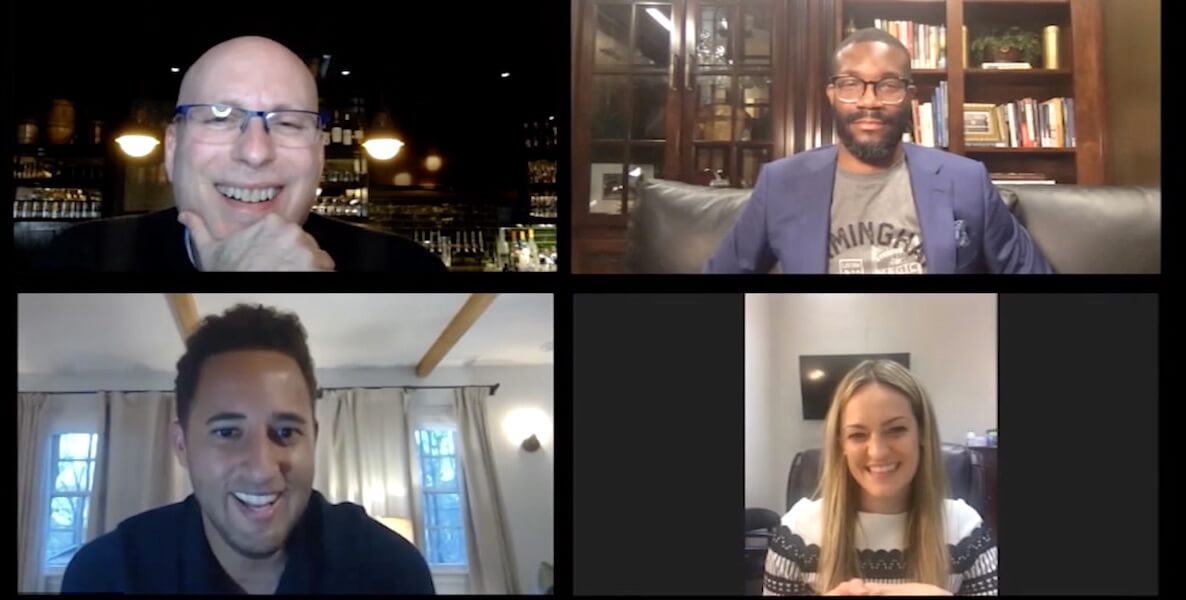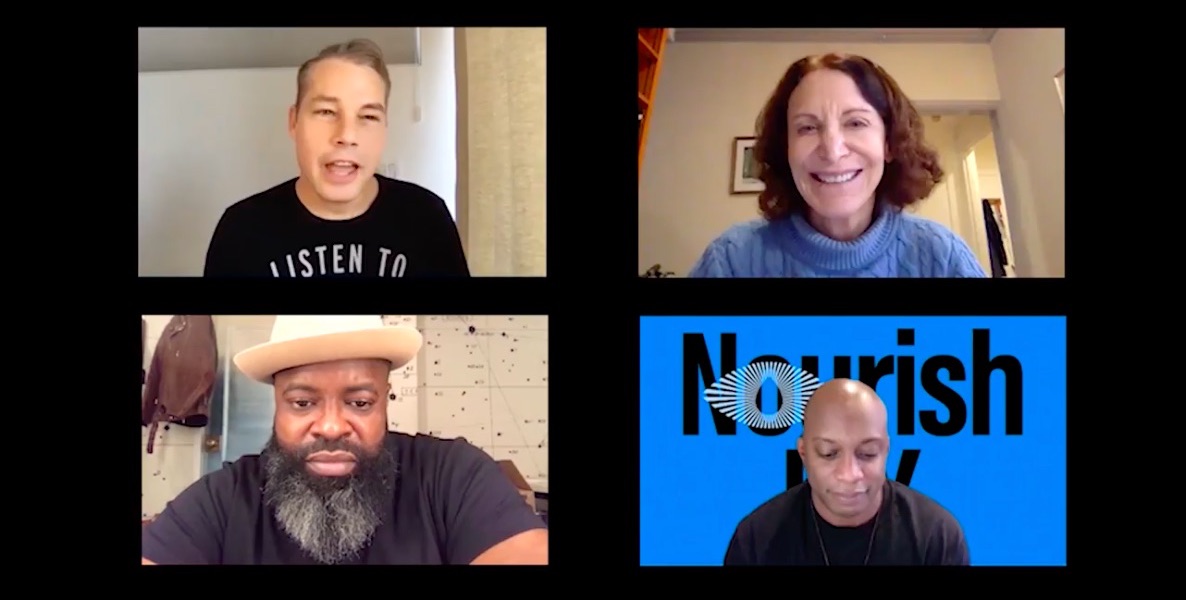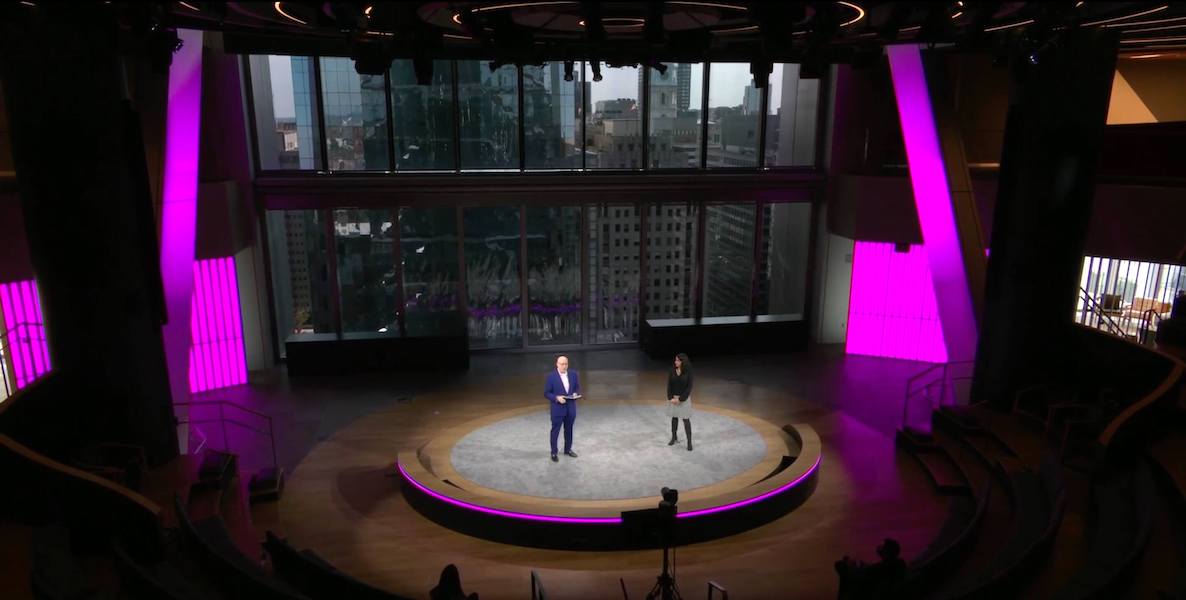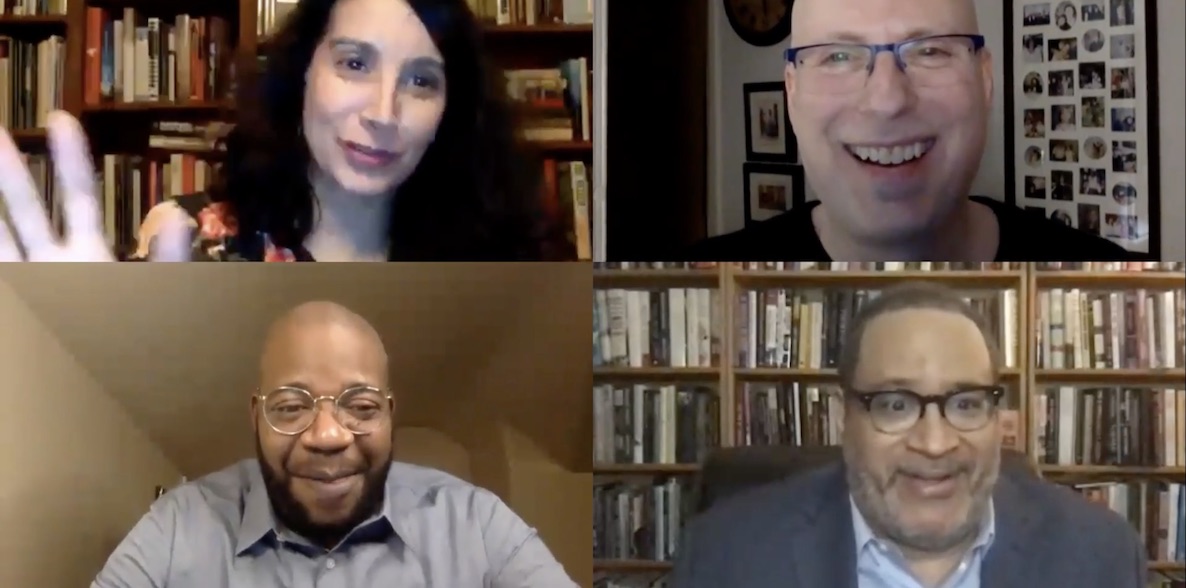Can we build a more just, equitable and prosperous Philadelphia?
Stay tuned for our video releaseMiss the festival?
Yes, by creating economic opportunities for young Black men most at risk of being victims or perpetrators of gun violence. Yes, by bringing government, nonprofits, businesses and those experiencing poverty together, to create more prosperity for everyone. Yes, by spreading this country’s enormous wealth to everyone—from corporate leaders to the essential workers who keep their companies going.
And yes, by holding up what professor and bestselling author Dr. Michael Eric Dyson called “agents of transformation” in 2021 and beyond: “I hope America remembers when you go back to your regular stuff, this pandemic of prejudice, of racial alienation and hostility, is what we have to deal with. But I’m hopeful that the very same people who have been its greatest victims will be its greatest agents of transformation.”
Here’s a sample of what we learned on Day 4. For a look at past weeks, see here.

1. We should listen to children more.
All month, we started the Festival with the voices of our area youth, as a way to remind us all that children have more answers than adults often do. In previous weeks, we heard Commonwealth Youthchoir’s rousing rendition of Elton John’s “Philadelphia Freedom,” and Hill-Freedman World Academy Singers’ performance their own piece, “Things That Matter.”
Last night, we listened as Philadelphia Youth Poet Laureate Cydney Brown recited a poem about gun violence, and to 15-year-old singer-songwriter WALLIS, daughter of Citizen partner and Globo CEO Gene Shriver, whose Covid Christmas song is taking the internet by storm.
Do Something: Watch WALLIS’s video here. Read more about Cydney Brown and follow her tenure as Youth Poet Laureate. Download Hill-Freedman’s album. Join, support or hear more from Commonwealth Youthchoir.
2. Capitalism can and should lift all boats.
Nick Hanauer, the earliest non-family investor in Amazon, is a capitalist—and a successful one at that. He’s rich enough to join billionaires like Bill Gates and Warren Buffett in taking the Giving Pledge, to give away his millions. But he is disdainful of the way capitalism has enriched a few at the expense of millions of Americans, something that prompted his push for a $15 minimum wage in his hometown of Seattle, and that he explores at length in his podcast, Pitchfork Economics. “It is ridiculous to believe that capitalism, that markets, are a good economic system and also believe that somehow the system will come tumbling down if companies are required to pay their workers enough to live in dignity and security,” Hanauer told MSNBC’s Ali Velshi. “Claiming that when jobs grow, jobs shrink is like saying when plants grow animals shrink. That’s not the way it works.” Instead, Hanauer encourages a more equitable system of distributing wealth—which, he claims, is a more natural way to be: “Being reciprocal and cooperative is humanity’s economic superpower.”
Do Something: Listen to Hanauer’s podcast, Pitchfork Economics, which he pitches this way: “Turns out, everything you learned about economics is wrong. And if we don’t do something about rising inequality, the pitchforks are coming.”

3. Jobs are an answer to the gun violence problem.
Former Obama Education Secretary Arne Duncan’s new venture is CRED, Create Real Economic Destiny, a Chicago-based program that pays young men at risk of being victims or perpetrators of gun violence in the South Side of Chicago to undergo jobs, education and life skills training—and then helps them get jobs, sometimes for the first time, in the legal economy.
The result? A 30-percent reduction in shootings this year in Roseland, on Chicago’s South Side, while the rest of the city has experienced a 50 percent increase—something we’ve seen in Philly in 2020, as well. “We’re solving an economic problem,” Duncan said, in a conversation with CRED participant Malik Tiger and Wendy Jones, who runs CRED community partner Youth Peace Center, “more so than a gun problem.”
Do Something: As Duncan has proved—and as Ceasefire’s David Muhammad laid out at last year’s Festival—there are proven, data-driven ways to reduce shootings in even the most violent neighborhoods. Police Commissioner Danielle Outlaw’s policing plan includes a version of this called Operation Pinpoint—which is a step in the right direction. But more is obviously needed. Demand it from our elected officials.
4. Poverty is solvable.
Just look to Canada, where Paul Born’s Tamarack Institute is well on the way to eliminating poverty as we know it. It requires a community-wide effort to identify the specific problems keeping people in poverty; the solutions needed to fix them; the resources to enact those solutions; and the will to keep at it until our neighbors are no longer struggling to make ends meet. Born, in conversation with Philly poverty-fighters Omar Woodard, CEO of the Green Light Fund, and Bill Golderer, CEO of United Way of Greater Philadelphia and Southern New Jersey, laid out the specific tools Tamarack has used across Canada to lift people out of poverty. And, he laid out the moral case for doing so. “Poverty is probably the most fractious problem facing the world today, the most fractious problem facing Philadelphia,” he said. “If we can end poverty, we can create more of a peaceful world.”
Do Something: Starting in the spring, the Poverty Action Fund, a joint venture between the City and United Way, will be open for contributions.

5. The racial reckoning of 2020 has just begun.
Buy Dyson's bookDo Something
And with that as an encouraging note, Dyson led us out of the Festival—and the year—on a note of, if not optimism, at least hope. “Hope exists, even when there is no evidence that it is true,” he said. “For me, hope is imagining a different future.”
Do Something: Read Dyson’s new book, and/or pick up his previous book on race in America, Tears We Cannot Stop: A Sermon to White America. (Through December, Head House Books will donate 20 percent of all book proceeds to The Citizen if you note “The Philadelphia Citizen” in your comments section.) And, check out Peterson’s Citizen column, The Color of Coronavirus, a look at the effects of the pandemic on Black Philadelphians.







